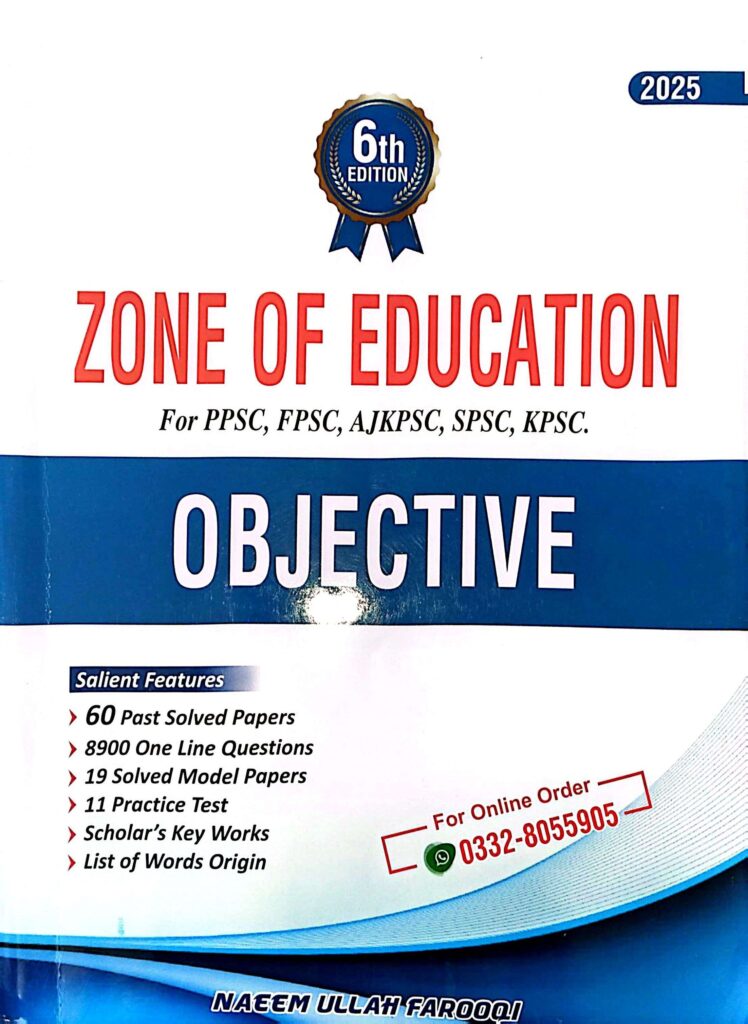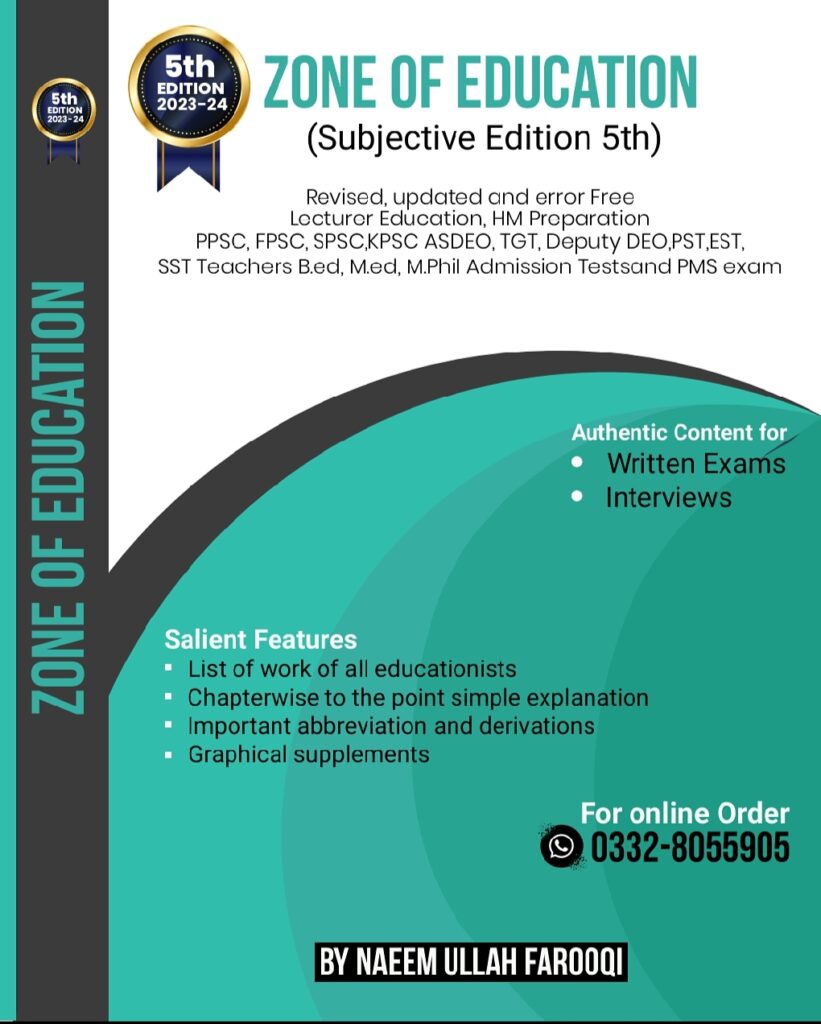Assessment
. Instrument used for measuring sample of behavior is:
o (a) Test
o (b) Measurement
o (c) Assessment
o (d) Evaluation
2. Limited to quantitative description of pupils’ performance is:
o (a) Evaluation
o (b) Measurement
o (c) Test
o (d) Examination
3. The purpose of the evaluation is to make:
o (a) Decision
o (b) Prediction
o (c) Judgment
o (d) Opinion
4. The purpose of evaluation is to make judgment about educational:
o (a) Quantity
o (b) Quality
o (c) Time period
o (d) Age
5. Evaluation that monitors learning progress is:
o (a) Placement evaluation
o (b) Formative evaluation
o (c) Diagnostic evaluation
o (d) Summative evaluation
6. A formal and systematic procedure of getting information is:
o (a) Assessment
o (b) Test
o (c) Measurement
o (d) Evaluation
7. The process of obtaining numerical value is:
o (a) Test
o (b) Measurement
o (c) Assessment
o (d) Evaluation
8. A sum of questions is:
o (a) Test
o (b) Testing
o (c) Assessment
o (d) Examination
9. The first step in measurement is:
o (a) Decision of what to measure
o (b) Development of the test
o (c) Administering the test
o (d) Marking of the test
10. The purpose of formative evaluation is:
· (a) Monitoring progress of students
· (b) Selecting students
· (c) Promotion to next grade
· (d) Check final status
11. To assess achievement at the end of instructions is:
· (a) Placement assessment
· (b) Formative assessment
· (c) Summative assessment
· (d) Diagnostic assessment
12. Vast of all in scope?
· (a) Test
· (b) Measurement
· (c) Assessment
· (d) Evaluation
13. The right sequence is:
· (a) Test, Assessment, Evaluation, Measurement
· (b) Assessment, Measurement, Evaluation, Test
· (c) Test, Measurement, Assessment, Evaluation
· (d) Evaluation, Test, Measurement, Assessment
14. The least in scope is:
· (a) Test
· (b) Measurement
· (c) Assessment
· (d) Evaluation
15. Permanent difficulties in learning are investigated in:
· (a) Summative evaluation
· (b) Diagnostic evaluation
· (c) Formative evaluation
· (d) None of the above
16. Broader in meaning is:
· (a) Aims
· (b) Objectives
· (c) Instructional objectives
· (d) Specific objectives
17. Procedures used to determine a person’s abilities is:
· (a) Maximum performance test
· (b) Typical performance test
· (c) Norm Referenced test
· (d) Criterion referenced test
18. The purpose of evaluation is to:
· (a) Make judgment about the quality of something
· (b) Assign a mark or score to a student
· (c) Measure the achievement of students
· (d) Test the student in a subject
19. In norm-referenced tests, the comparison is between:
· (a) Groups
· (b) Individuals
· (c) Areas
· (d) Interests
20. In which question marking will be more reliable?
· (a) Completion
· (b) Short answer
· (c) Multiple choice question
· (d) Essay
21. Facility value of less than 0.20 means:
· (a) Item is too easy
· (b) Item is easy
· (c) Item is acceptable
· (d) Item is difficult
22. Objective type questions have an advantage over essay type because such questions:
· (a) Are easy to prepare
· (b) Are easy to solve
· (c) Are easy to mark
· (d) Test critical thinking
23. Discrimination value of more than 0.4 means:
· (a) Item is good
· (b) Item is acceptable
· (c) Item is weak
· (d) Item discriminating negatively
24. Tests involving the construction of certain patterns or solving problems in terms of concrete materials are called:
· (a) Intelligence tests
· (b) Performance tests
· (c) Scholastic aptitude tests
· (d) Interest tests
25. In a multiple-choice item, the stem of the items should be:
· (a) Large
· (b) Small
· (c) Meaningful
· (d) Relevant
26. Which appropriate verb will you use to make an objective behavioral?
· (a) To know
· (b) To appreciate
· (c) To understand
· (d) To construct
27. Objectives representing the purposes of instruction of a teacher are called:
· (a) Performance
· (b) Instructional
· (c) Attainment
· (d) Terminal objectives
28. The main advantage of essay type questions is:
· (a) They can measure complex learning outcomes which cannot be measured with other types of questions
· (b) The student can guess the answer
· (c) Are easy to mark
· (d) Can diagnose the learning difficulties of students
Top of Form
Bottom of Form
29. Running description of active behavior of a student as observed by the teacher is:
· (a) Anecdotal record
· (b) Autobiography
· (c) Interview
· (d) Questionnaire
30. A test very popular with classroom teachers is:
· (a) True False Test
· (b) Completion Test
· (c) Matching items
· (d) Multiple choice
JOIN ZONE OF EDUCATIONPK!
Discover the most comprehensive and reliable pedagogy resources in Pakistan, curated for competitive exam success. Our content covers all competitive exam MCQs, including PPSC, FPSC, AJKPSC, SPSC, and more. Designed to empower learners with top-notch material and insights, trust us for your preparation journey!


